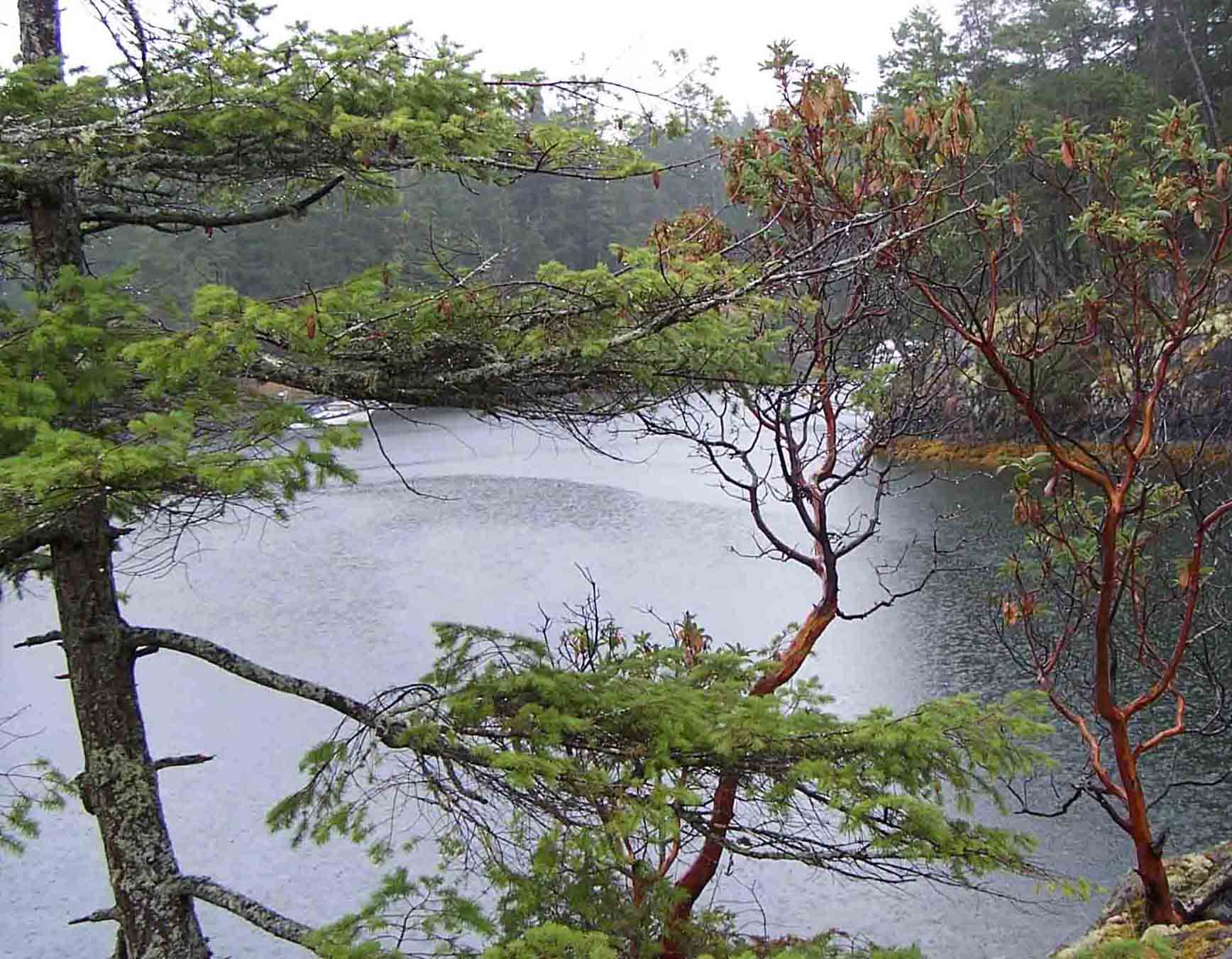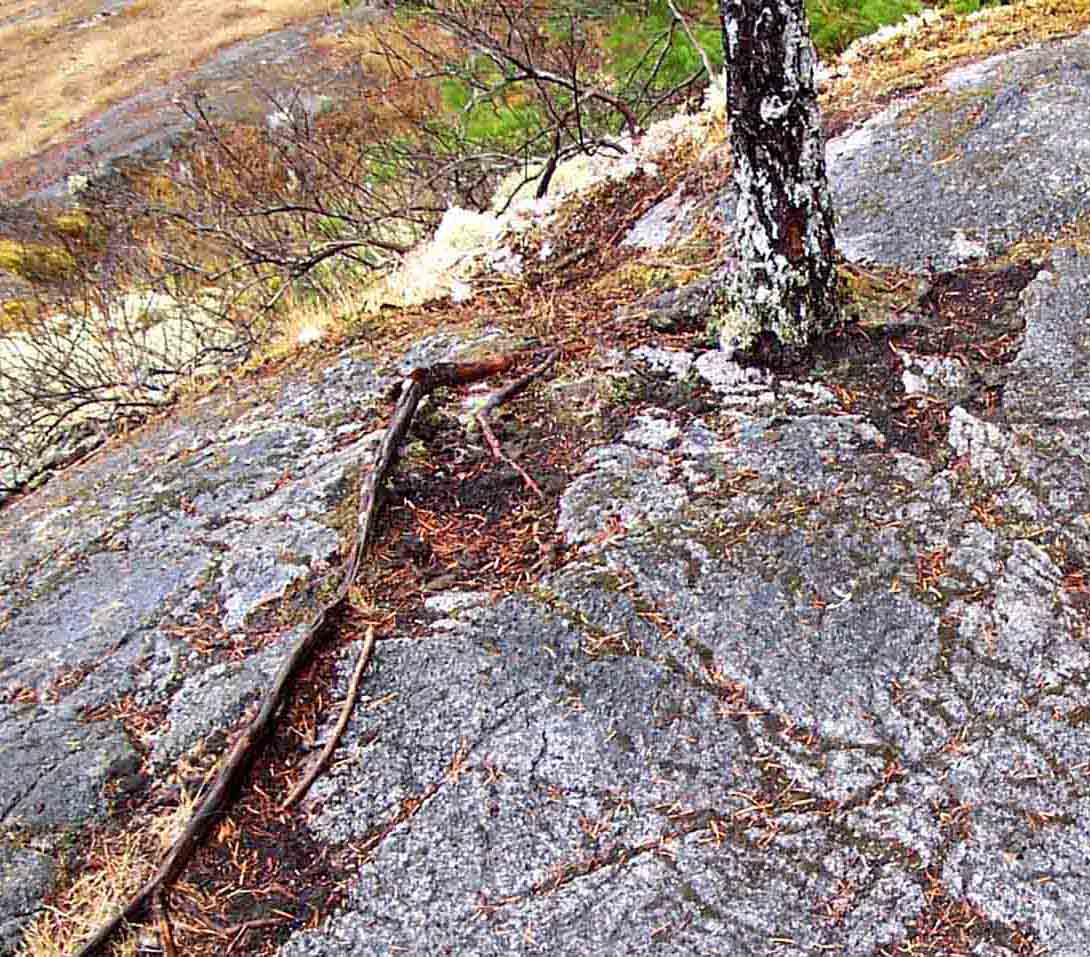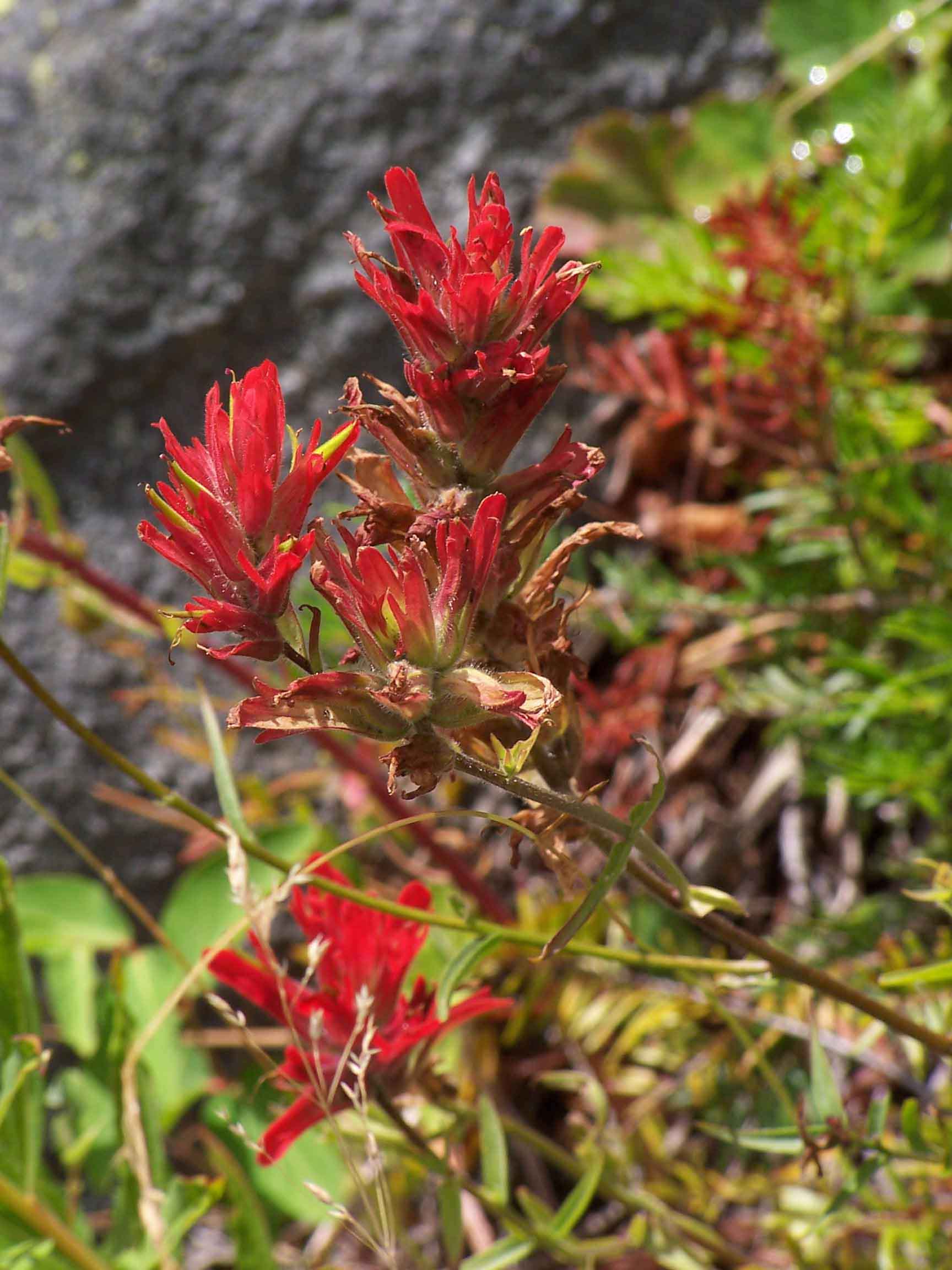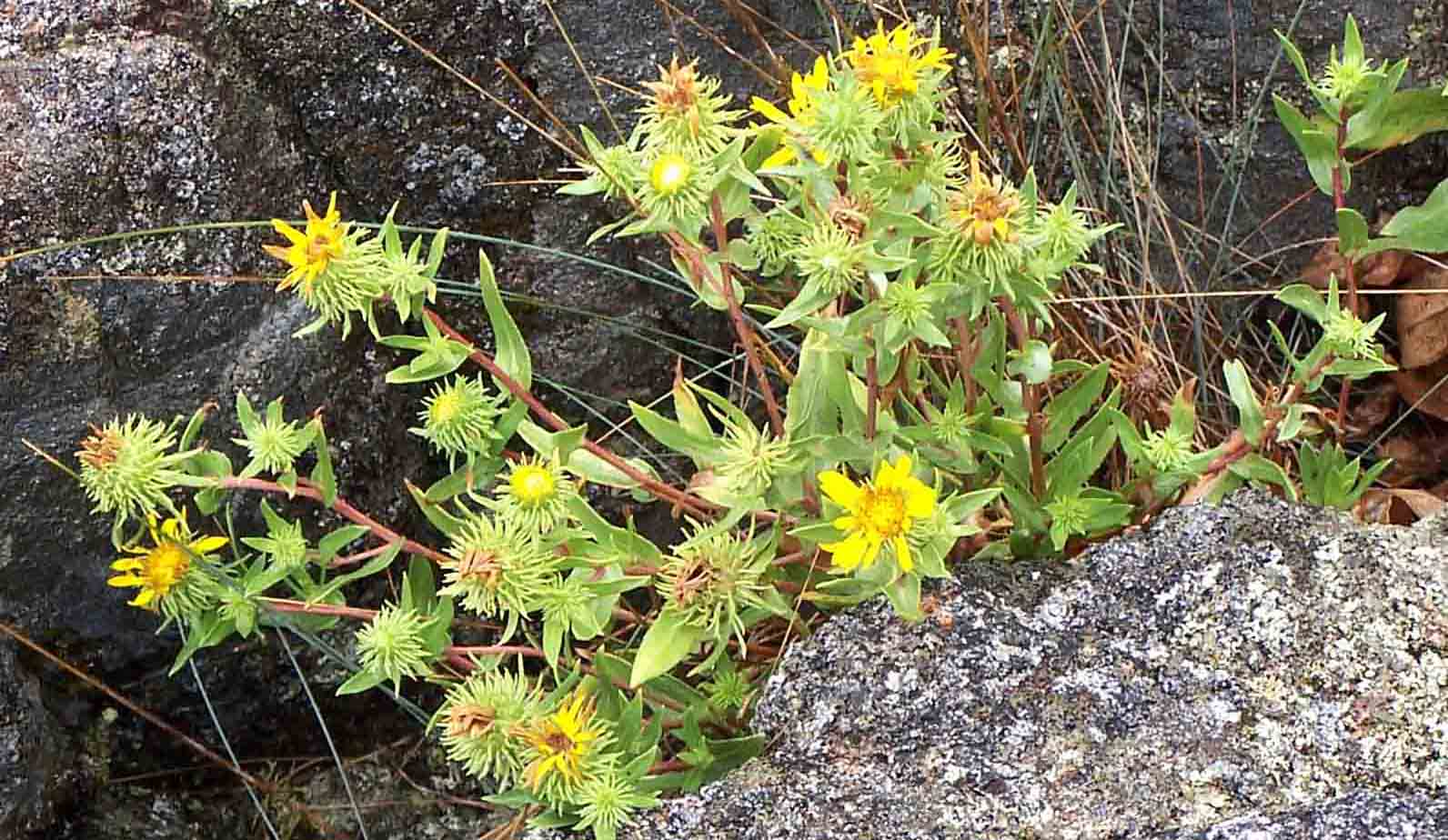I’m following Holly’s lead and slipping into fantasyland today. Though this part of the country has no snow, it is a typical cool, misty and gray winter morning in Seattle. So I’m going to a happy place and reminiscing about my summer vacation to Sechelt, British Columbia.
Sechelt (pronounced like “seashell” with a “t” at the end) is a lovely place full of wonderful people (and great gardeners!), but I’m going to focus on the coastal rock gardens at Smuggler’s Cove Marine Provincial Park. We visited on a day much like the one I’m experiencing now, so there weren’t many visitors. All the better for us.

Since my interests trend towards plant adaptations to harsh environments, this rocky, salt-sprayed landscape naturally drew my eye. Trees colonize the bare rock, rooting along cracks and fractures.

Even though we were past the flowering season, these natural gardens were still striking with their miniature plants. Many of these are cushion formers, and together they formed living patchworks.


And there were still a few wildflowers left as well.


Hot and dry in the summer, constantly sprayed with salt, and living on the thinnest of soils, these rock gardens nevertheless have a rich diversity of plant and insect life. And all without vitamin B-1, compost tea, Epsom salts, or any of the other products aggressively marketed to the gardening world…truly amazing.
Hot and dry in the summer, constantly sprayed with salt, and living on the thinnest of soils, these rock gardens nevertheless have a rich diversity of plant and insect life. And all without vitamin B-1, compost tea, Epsom salts, or any of the other products aggressively marketed to the gardening world…truly amazing.
Yes, but how many millions of seeds or spores did Nature plant in order to get that result. I don’t actually use any of the above substances, but I do understand people’s desire to better the odds for the many fewer plants they’re willing to invest in.
I’m all for bettering the odds, Deirdre, but many of these products aren’t going to help and in fact can create unsustainable conditions. The point I’m trying to make (and maybe too subtly?) i
620
s that plants are tougher than we give them credit for, and maybe we shouldn’t pamper them so much.